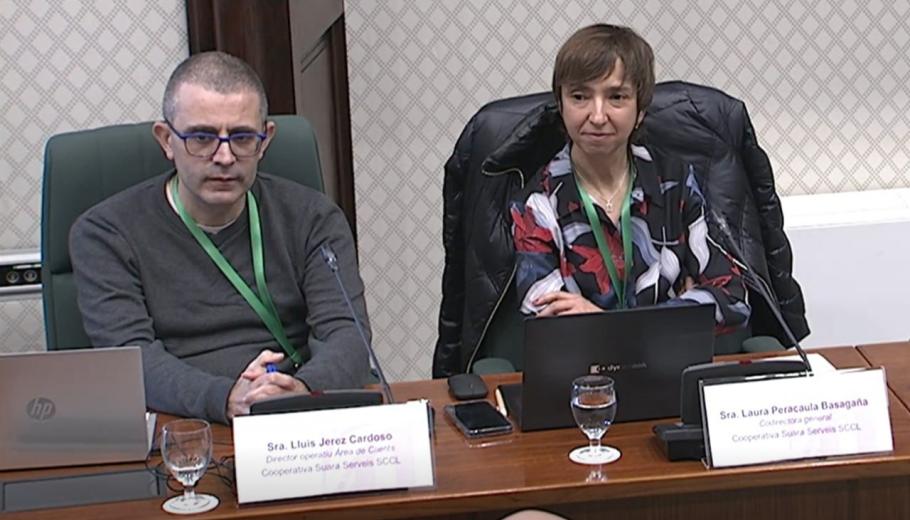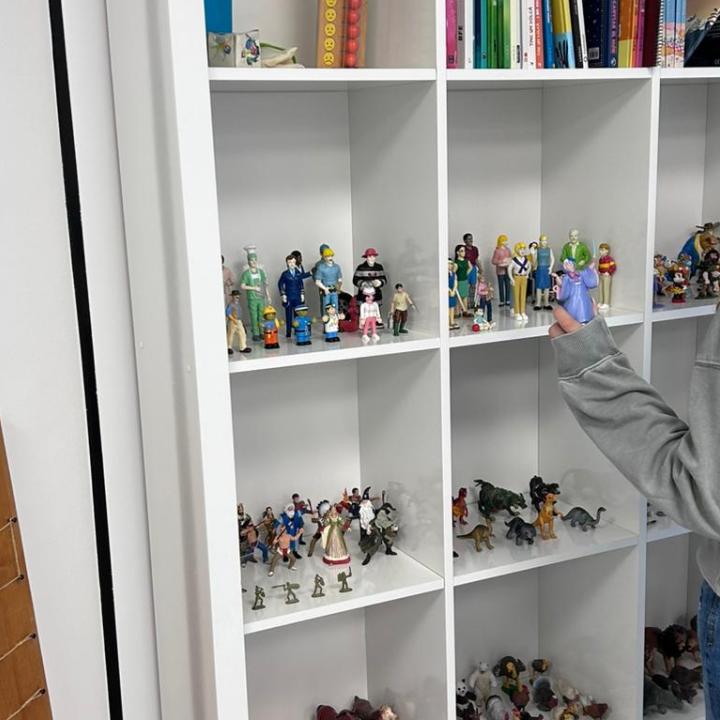The co-director general of Suara Cooperativa, Laura Peracaula, and the operational director of Clients Lluís Jerez have appeared before the Commission of Social Rights of the Parliament of Catalonia, where he has presented 15 key points that should include a future law of the elderly so that the rights of this group are respected.
"We understand that this bill fits and must fit within the strategy for the long-lived society and full life," said Peracaula, during his appearance that has taken place in the framework of the debate of the proposal of the law of the elderly.
Western societies are aging as a result of the low birth rate and, thanks to medicine, people are living longer. As Peracaula explained, in 1992 life expectancy in Catalonia was 77.64 years, while now it is 83.58 years. However, according to Peracaula, "old age is no longer perceived as a time of weakness and loss of faculties, but as what it is: a new stage of life, with its challenges, of course, but also full of opportunities, and we believe that this spirit should breathe in this legislative proposal".
As stated in the legislative proposal, 60% of people over 85 years of age are in a situation of dependency. In view of this situation, Jerez recalled the lack of professionals in the sector to meet the care, health and promotion needs of the elderly. For this reason, he called for this legislative proposal to include the professionalization of the care sector. Also, on this point, he considered it vital to reduce the number of days waiting to receive dependency assistance, which currently stands at 294 days, while the current regulations estimate that it should not exceed 180 days.
In addition, Jerez stated that the aging process must take a global and integral view of the person, encompassing the social, relational, psychological, biological and medical dimensions of each human being. For this reason, the model of accompaniment must be adapted to the degree of dependence and autonomy of the person. It must also incorporate specific actions for both prevention and care to address possible mental illnesses that may be triggered by the loss of cognitive skills, the onset of dementia or other possible disorders.
In addition, Jerez has stated that the aging process must take a global and integral view of the person, encompassing the social, relational, psychological, biological and medical dimensions of each human being. For this reason, the model of accompaniment must be adapted to the degree of dependence and autonomy of the person. It must also incorporate concrete actions for both prevention and care to address possible mental illnesses that may be triggered by the loss of cognitive skills, the onset of dementia or other possible disorders.
Another challenge in this phase of life is how to combat unwanted loneliness, in which many people live who have seen how their social network decreases due to the loss of loved ones while family members cannot care for them because they have other daily activities such as work or studies. At this point, Jerez has argued that technology can become a solution to deal with unwanted loneliness, as it can ensure that people preserve social contact and a relational network through the digital sphere. In addition, other tools such as sensors, telecare, adjustable tables or smart watches can help the home become a safe environment for the person living there, despite being in a situation of dependency.
In the case of those people who need to live in a residence, Jerez has argued that these should not only be in an urban environment, but also in rural areas so that everyone can live in a place that fits their personal profile and that of their family. "We are committed to residences with cohabitation units and with less than 90 beds, with individual and intimate spaces, if necessary, without losing sight of the social recognition and the professional staffing of residential centers (training, labor, salary and conditions)," he said.
Finally, Jerez added that this bill should also guarantee other rights of the elderly such as: housing, dignified death, access to leisure and culture; their sexual development, as well as respect for both cultural and social diversity. For this reason, Suara Cooperativa and other entities are working on guides on how to include the LGTBI+ perspective in residential centers or other resources for the elderly.
"Experience also tells us that it is important to have the direct and first-person opinion of the protagonists of the law (the elderly), so that they can contribute their vision taking into account the current moment," said Peracaula.





